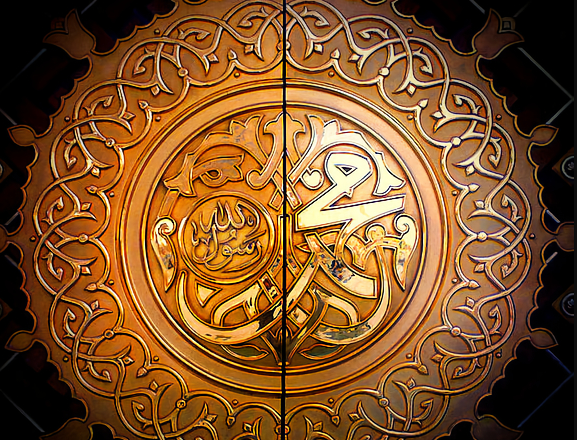In 7th century, society is totally transformed by the birth of Islam. Prophet Muhammad (PBUH) born in Makkah at this time. Unfairness, worship of idols and tribal conflicts were very common in societies, his teachings provided hope, a sense of togetherness and direction at this time. Not just for the Arabian Peninsula but for the whole world, the birth of Islam as a result of his teaching represented a turning point. His teachings and actions acted as a source of inspiration for people, His legacy has transformed cultures, empires and societies in each corner of the world. . Over 1.9 Billion Muslims today use his teachings as a guide for belief, ethics, human rights and equity in society. It is easier to figure out how strongly Islam’s message still influences the world when you recognize the global impact associated with its earliest days.
The Birth of Islam: A milestone moment in History
The milestone moment in human history was the birth of Islam. In the early days of Islam, during the 7th century, people were lost in darkness of ignorance. Every kind of evil was widespread among them. Women had no rights and respect and were treated like animals. Oppression, brutality and cruelty were common practices within societies and tribes. When Prophet Muhammad (PBUH) came in this world, a ray of hope emerged amidst in ignorance and social injustice of that time. Even before becoming a Prophet, he was known as Sadiq and Al-Amin. People held him in high respect because of his noble character and kind treatment towards other. When he was forty years ole, he got his first revelation from Allah through Angel Jibreel, marking the birth of Islam. His teachings, which focused on the Tawhid, the fundamental principles of justice and empathy as well as equality. This message gave a picture of a society based on ethics principles and justice, challenging the old system.
The Teachings and Everlasting Legacy of Prophet Muhammad (PBUH
Prophet Muhammad (PBUH) inspired people all over the worlds by his actions and words. He worked as a teacher, reformer and messenger of Allah. His teachings focused on social, ethical and spiritual sides of life.
- Spiritual Guidance: The prophet (PBUH) helped people to build a strong connection with Allah and to live more meaningful life by giving them a clear and straight path of worship, faith and morality.
- Social Reforms: He (PBUH) raised women’s status in society by giving them the right to choose their own partner, gain social respect and inherit property. He made charity a fundamental virtue by promoting compassion and caring for the needy, the orphans and the poor.
- Justice and Equality: Prophet Muhammad (PBUH) stated in his last speech that piety and righteousness are the only ways to achieve superiority, not race or ethnicity — an Arab has no advantage on non-Arab and a white person over a black person. This equality principle became a fundamental aspect of Islamic society.
- Model of Character: His generosity, humbleness, tolerance and honesty still motivate people everywhere. After seeing his admirable qualities, even people, who has previously opposed him, began to support him.
These teachings left a legacy that extends beyond place and time by serving as the cornerstone of a new society that prioritized the fairness, unity and compassion.
The Spread of Islam and Its Global Impact
The Prophet’s mission was continued by his associates after his death in 632 CE. Islam flourished from Arabia to Africa, Europe and Asia in less than a century. In addition to military encounters, trade, scholarship and moral examples established by Muslims, all contributed to its quick spread.
- Unity and Brotherhood: Prophet Muhammad (PBUH) taught the lesson of brotherhood and unity. All Muslims are brother and all are equal. Wealth, status and nationality hold no value in this regard. He advised people to treat one another with love, care and kindness.
- Cultural Influence: Islam influenced progress in fields of architecture, literature and education. Mosques and educational institutes served as a symbol of this dynamic and thriving society.
- Global Civilization: During the golden age, Islam is developed as a centre of knowledge. Muslims scholars expanded knowledge and succeeded in fields like astronomy, medicine, mathematics and philosophy. These work serve as a foundation of education in Europe. Islamic concepts, Islamic architecture and values spread around the world via trade routes and cultural interactions.
- Enduring Relevance: The legacy of Prophet (PBUH) and the birth of Islam still guided great number of people today. His teachings provided solution to contemporary problems. His teachings about justice, compassion and faith are timeless.
Prophet Muhammad’s Global Legacy Today
Prophet Muhammad’s (PBUH) mission has made a tremendous global impact that is still present today. The teaching of Prophet (PBUH) about Towheed, justice and equality remain a guiding light for Muslims today in their faith and daily worship. His teaching on equality and unity are still relevant in a world divided by race, power and status. True superiority lies only in piety. His influence is also acknowledged by non-Muslims scholars and historians. His contributions to establishing the groundwork for a civilization that prioritized equality, fairness and knowledge and bringing a divided society together is widely admired. His life is still examined as an ethical and spiritually motivated example of successful and effective leadership.
